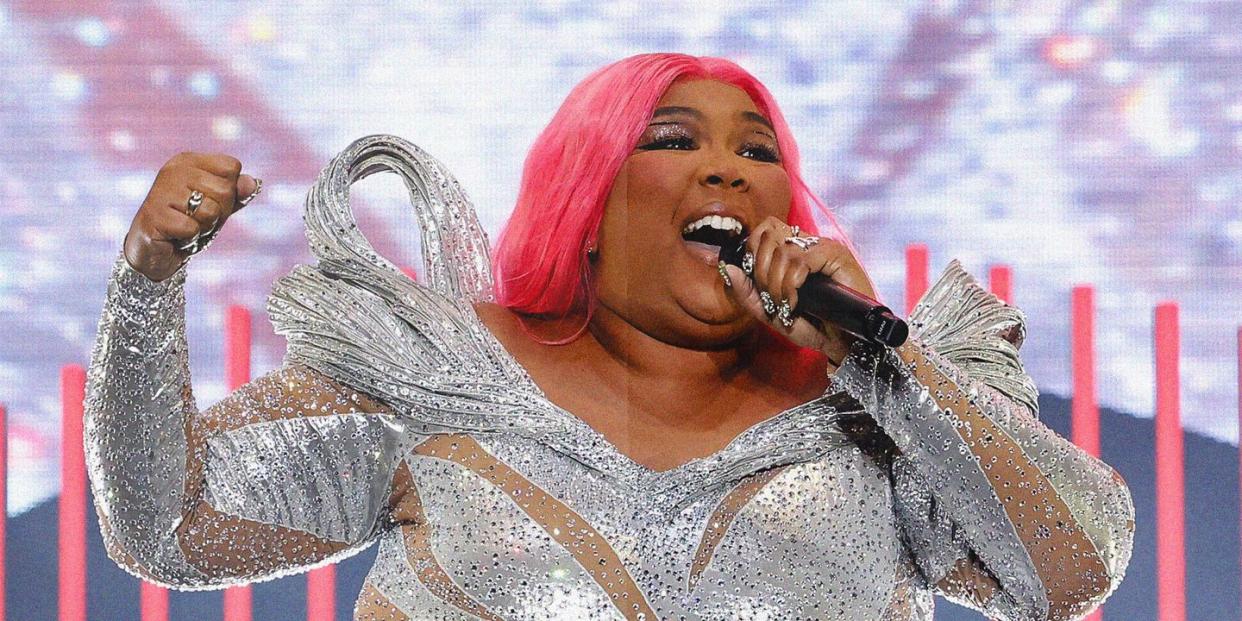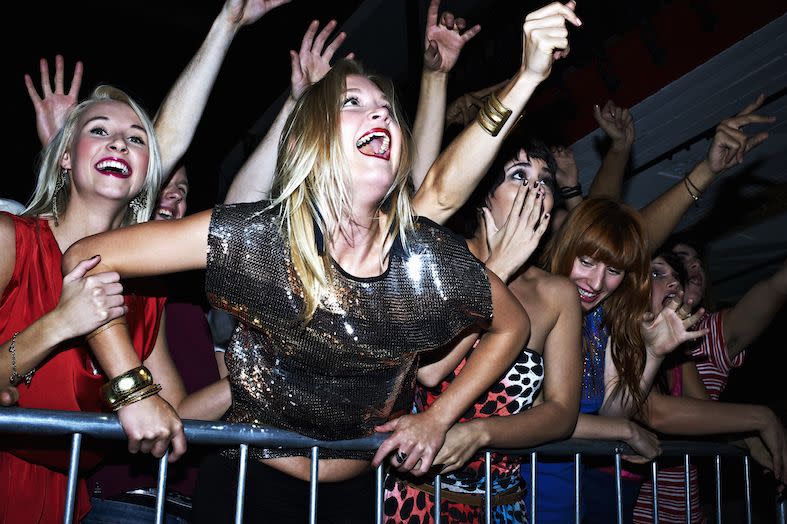Why does it feel so personal when a celebrity does something bad?

Twenty years ago, the thought of feeling personally impacted by a celebrity's behaviour would have seemed absurd. Confined to the pages of magazines or within the frames of television and film, they shared the minutiae of their lives infrequently and with great restraint. The parts of them that they wanted us to see — a wedding splashed across the centrefold of a magazine or an interview promoting a new project — were all we, as fans, were entitled to.
Aside from the relentless gossip blogs and unflattering paparazzi shots, the quotidian moments of their lives and their opinions were largely reserved for their friends, family and people within their immediate social circles. Then, the dawn of social media.
Suddenly, we were invited inside celebrities’ homes. We know the brand of juice they like to drink and the workout class they prefer. We see them vote and advocate for change. They speak to the cameras — directly to us as we scroll from the sofa. For the first time in living memory, celebrities really do seem like us, and we have a direct line in that isn’t moderated by tabloid ‘sources’ – we can see firsthand when stars struggle with heartbreak or strive for happiness, in the same way we mortals are.
Yet, as our access to them increases, their role continuously shifts. Famous faces slip from being entertainers to cultural touchpoints to a warped type of friend. The more we consume their content, the more we feel we know them. The more we see them, the more our relationship with them solidifies. The fact they don't have a clue who we are matters little.
So when a celebrity we feel we know is accused of doing something at odds with their public persona, something off-brand or outside of the law, it feels like a personal slight, an insult to our loyalties and allegiance to them.
This week, pop star Lizzo was in the spotlight for all the wrong reasons. Three of her former dancers launched a lawsuit against her and her dance captain Shirlene Quigley, citing a "hostile" work environment replete with fat shaming and sexual harassment. The 44-page suit has sparked a feverous conversation, with some expressing their disappointment in Lizzo. Lizzo has strongly denied the allegations, calling them ‘outrageous’ and ‘sensationalised’.
When the story first came out, my initial reaction was to feel let down. While the veracity of the claims has yet to be proven (and I do believe we should reserve judgement until we know more), the sheer association between Lizzo — who until now was seen by many as a sort of moral compass for social and cultural good behaviour — and such accusations is deflating.
The pride I had felt in and about Lizzo – a fat Black woman at the forefront of her industry and an icon of body positivity, exhibiting the pinnacle of skill and creative talent – tasted slightly sour. More than someone I enjoyed the music of, Lizzo had come to represent something larger, more important. Beyond her humanity, I had made her mean so much more: female empowerment, Black excellence and unreserved joy. This enmeshment made the allegations even harder to swallow.
But this week’s lawsuit against Lizzo is just the latest in a long line of names over recent years, and recent weeks in particular, who have had our idolisation of them thrown into question, rightly or wrongly. Some for very good reason, some more questionably so. From outright illegal activity, to infidelity or just plain rudeness, there’s a whole spectrum of celebrity bad behaviour that can shake us up and let us down.
But why would I respond quite so emotionally, so personally, to allegations against a pop star I don’t know more so than say, a stranger accused of the same things? The answer lies in parasocial relationships.
"Parasocial relationships are one-sided relationships, where an individual forms an emotional connection with a celebrity, media figure fictional character or even an organisation (ie. sports teams), whilst the other party is completely unaware," Dr Sophie Mort, clinical psychologist and mental health expert at Headspace explains to Cosmopolitan UK.
"They are typically cultivated through repeated exposure, which brings individuals a sense of familiarity that resembles a mutual relationship," she continues. "Over time, so many personal experiences are shared with the celebrities we follow that we develop an intimacy and friendship with the ‘media figure' and feel that they know and understand us."
On paper, the thought of creating a one-sided relationship like this feels alien. How can the behaviour of total strangers, whose lives are, ultimately, a big showy marketing campaign designed to hook us in and make us feel connected, directly impact my mood and emotions?
We see this sort of unfounded loyalty to famous faces time and time again, explains Dr Mort. "Social media platforms have eliminated the physical and geographical distance between fans and celebrities," says Dr Mort. "This creates a sense of proximity and intimacy. It might not be easy at first, but over time there are ways to maintain a healthy separation between our sense of self and celebrity behaviour."
Psychologist and sex and relationships adviser Barbara Santini adds that the emotional impact of a celebrity's behaviour resonates deeply because, maybe without even realising, we've intricately woven these figures into our self-identity and worldview. "They aren't merely public figures but extensions of our social circles, or even our ideals. If they falter, it feels like a personal betrayal, shaking the foundations of our constructed realities and creating existential unrest," she shares.

When these people come to represent something bigger to us, an ally in a fight or figurehead to mass behind, the associated emotions are even greater. Their behaviour reflects on us as a whole, on what we believe.
Ultimately, we don’t know if these accusations are entirely true – but that there’s even a small part of me wishing it’s a big misunderstanding, says it all. So how can we break free of our false connection with celebrities?
Dr Mort says we can maintain objectivity by recognising celebrities’ humanity and fallibility by rejecting idealisation and trying to limit our exposure to them, by instead focusing on our real-life relationships. Separating your own personal values from those exhibited by a celebrity is a sensible step to take, she recommends, as well as encouraging practising critical thinking.
The nature of our social ecosystem – the fact that the majority of our interactions take place via a keyboard or through a screen – facilitates the idolisation of celebrities. And when that idolisation is threatened, we can choose to mourn, disagree or simply break free of the invisible ties that bind us to the glow of fame and wait for the truth to unfold.
You Might Also Like


